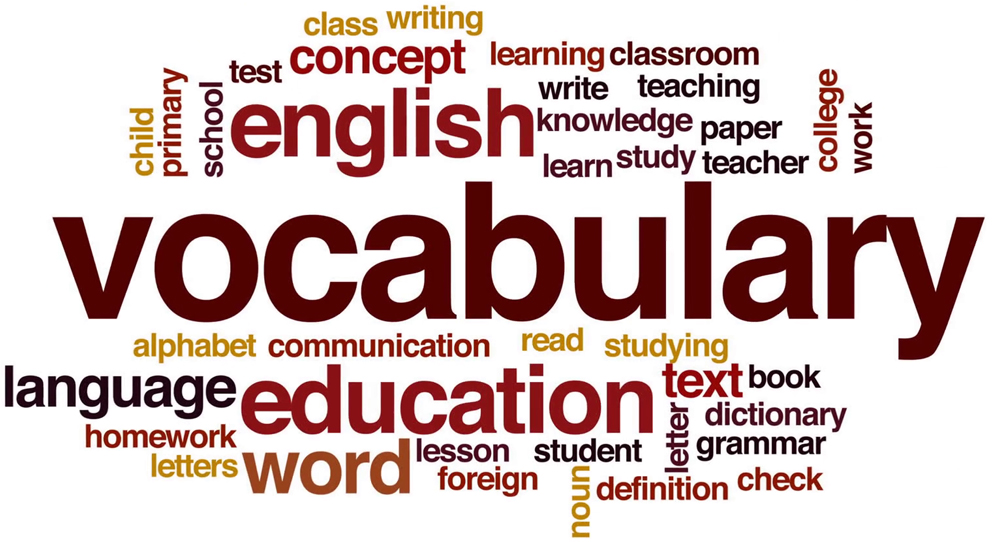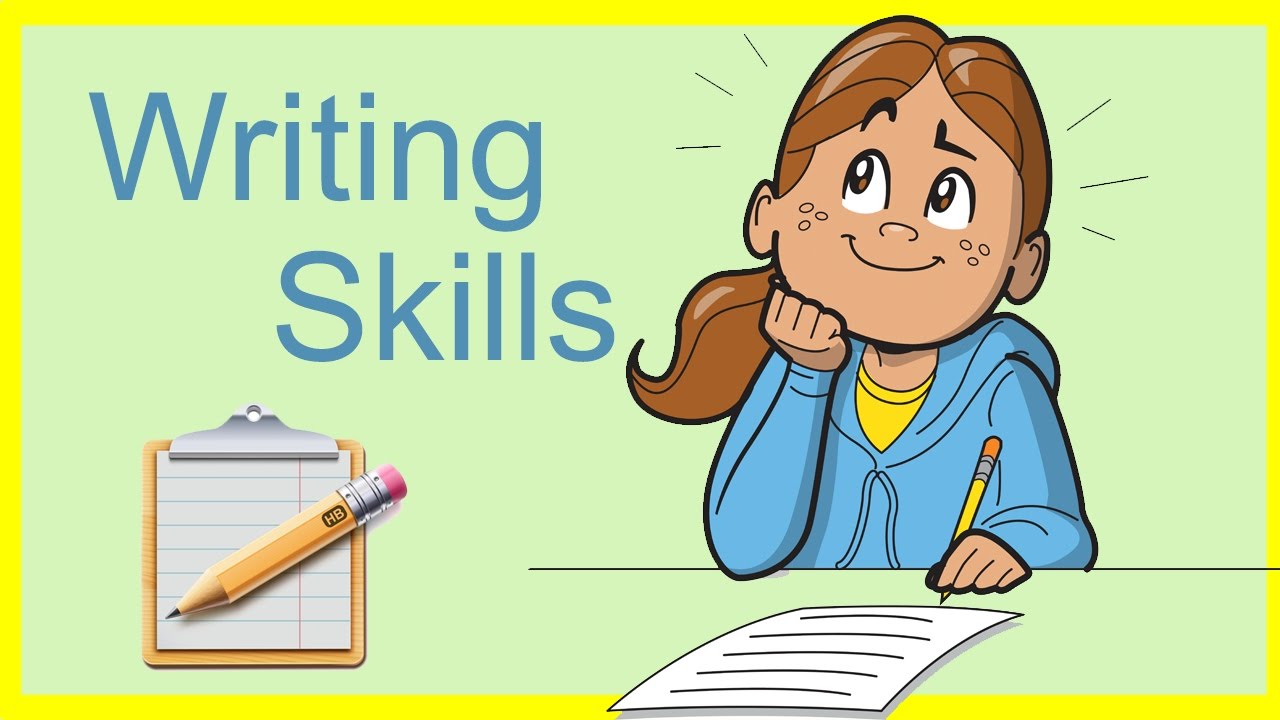Topic: “How to teach vocabulary and writing skills in an engaging and
fun way?”
The main skills that I want to teach to my students which are related to my final project are vocabulary and writing, as they are related to one another, but also speaking, reading and listening. I think that all skills are interrelated with one another and won't function so well separately, although as much as I would like to not all students are good at all these skills, that's why they are divided into different categories. I've included in some way each and everyone of them into my lesson. But, the primary focus of my lesson is teaching the new words of the vocabulary about films/movies, taking about it with my students and writing an article about their favorite movie.
How do we define vocabulary? Vocabulary is the foundation of language.
In a nutshell, vocabulary is important because it’s the basis of all language. It’s the raw building blocks that we can use to express our thoughts and ideas, share information, understand others and grow personal relationships. When you have a wider vocabulary in your target language it also helps support all four language skills: reading, writing, listening and speaking. As Paul Nation (2015) noted in his paper on vocabulary learning: “Vocabulary is not an end in itself. A rich vocabulary makes the skills of listening, speaking, reading, and writing easier to perform.” Vocabulary is clearly important for language learning as it underpins all other language skills, can be a stepping stone to high level language use and can help the student to achieve fluency faster.
What are the benefits of vocabulary?
1. It Improves Reading Comprehension. Research has shown that kids need to understand 98% of the words they read to understand what they are reading. Improving vocabulary skills will improve their understanding of novels and textbooks.
2. It’s Important to Language Development. Children who develop a rich vocabulary tend to be deeper thinkers, express themselves better and read more. Improving language and literacy skills early in life will help them be more successful academically and communicatively.
3. Communicating Ideas. Successful communication or “saying what you mean” is dependent upon a good vocabulary base. Using the right words when talking, makes you a more effective communicator.
4. Expressing Yourself in Writing. Having a good vocabulary to draw from can help you write more effectively. Students need to use a more formal tone when writing – not conversational language – and to do that, they need a richer vocabulary to tap into those words we don’t use when we speak.
5. Occupational Success. Researcher Johnson O’Connor found that “a person’s vocabulary level is the best single predictor of occupational success.”* Success in the business place depends on your communication skills.
How I would teach vocabulary through the use of media or technology elements?
1.) Using a 'movie vocabulary' video with animation, pictures, written vocabulary words with explanation and the audio voice on the background. I might ask students to watch the video first and try guess the topic of the lesson and then re-watch the video again, but this time I pause
it frequently for discussion and clarification. / or I introduce them with the topic of the day: "My favorite movie", and in order to grab my students attention and get them involved in the lesson, I have a class discussion about movies such as:
1. Do you like movies? Yes. / No.2. What kind of movies do you like? What genres do you know? (Action, Comedy, Romance, etc.)
3. Who’s your favorite actor / actress?
4. What was the name of the last movie you saw? / Tell me the name of a movie / film you’ve watched recently.
5. What kind of film was it?
6. Did you like it or not? Yes / No? ; Why?
Then, I ask students to watch a video containing the new vocabulary about movies and explain the content of the video in more detail. After that, 2.) I use graphics and pictures to make it more appealing to student's eyes with some other types/genres of movies which weren't in the video; explain it, discuss with them and have a practice review about what they learned until now. / 3.) Also, to make it more practical and see if they really understood everything, I can ask them to do a 'quiz activity' on an online website: https://wordwall.net/play/16749/858/356 5, that I created myself where students have to 'Guess the movie genre/vocabulary' related with the video. Here, each student should write their name, complete the quiz within 5 minutes and submit their answer to me.
The next part is about writing skills.
How do we define writing?
Writing is a core skill that benefits students across the curriculum, K-12 and beyond. It’s the basis of communication, history, art, and more disciplines than can be named. Writing skills are used every day in classrooms, from practicing fine motor skills early on to eventually writing full essays to display critical thinking skills or persuasive skills.
Writing is the foundation of expression we give students, to be built upon throughout their academic career. Although specialized writing classes like composition have faded from popular pedagogy, writing requires a complex intersection of skills that are critical to a student’s life, both in the classroom and out of it.
However, although writing skills are increasingly important, they are often not adequately taught. When writing is taught in schools, writing instruction often takes a backseat to phonics, handwriting skills, and reading comprehension, so I think we as teacher should pay closer attention to this skill.
Why is Writing Important?
Writing is used in many areas of our lives.
• Writing is critical to becoming a good reader.
• Writing is an essential job skill.
• Writing is the primary basis upon which one’s work, learning, and intellect will
be judged—in college, in the work place and in the community.
• Writing equips us with communication and thinking skills.
• Writing expresses who we are as people.
• Writing makes our thinking and learning visible and permanent.
• Writing fosters our ability to explain and refine our ideas to others and ourselves.
• Writing preserves our ideas and memories.
• Writing allows us to understand our lives.
• Writing allows us to entertain others.
How I would teach writing through the use of media or technology elements?1.) I would use the PowerPoint Presentation using a video projector in class while presenting the writing part. Here, I would use their previous knowledge to guess what a film review is, as I've mentioned their 10th grader students, so they have encountered this topic before in their previous school years. Then after receiving some responses from my students, I move on to the explanation of: "What is a film review?" and "How to write an article / review of your favorite movie?", - explaining the structure of a review with actual examples, useful words / expressions/ adjectives to describe films and write the review. Then, ask them if they understood or they could provide me with some examples of their own. 2.) Next, I present them with an actual example of a review about the film - 'Ant Man', a reading passage, but first I instruct them to listen to it as an audio recording, they listen to it carefully for the right pronunciation and meaning of the text, and then I ask some students to read it aloud and try to translate it in Albanian while giving feedback if needed. 3.) After that, we move on to the exercises related with the film review, which could be from the textbook or a quiz I've created myself about certain elements in the reading passage, like the structure, its purpose - for students to comprehend more the use of a film review and how to make one themselves. In the end, I give them their 'HOMEWORK: Write an article about your favorite movie (100 – 120 words) for a school magazine, using the plan below.
Plan
Introduction (Para 1): title, type of movie, actors
Body (Para 2): main characters, plot
Conclusion (Para 3): opinion & reason.' and also give them some recommendations => five websites that will help them become more knowledgeable about films / film reviews and help their English at the same time:
Website 1
https://wordwall.net/play/16749/858/356
Website 2
Rotten Tomatoes
Rotten Tomatoes is a film review website. You can find tens of thousands of film reviews here. It’s a great website to visit when you are deciding what film to watch. You can find out who is in the film, what type of film it is and most importantly what other people thought about the film.
Interesting fact: Rotten tomatoes used to be thrown at actors by the audience if a performance had been bad!
Website 3
ISL Collective
ISLCollective is a website that focuses on English language learning and film. There are hundreds of film clips and each one has interactive learning activities to help you with your English.
Website 4
Trailer Addict
Trailer addict is a website where you can find thousands of trailers (those film clips that are used to advertise and promote movies). Watching trailers can be a great way to practise your English, especially if you don’t want to watch a full film. Alternatively, you can use the website to decide which film to watch at the cinema or at home.
Website 5
IMDb
IMDB.com is another film review website. There are thousands of reviews from professional film critics and the general audience. You can find out more about the film, watch trailers and you can even add your own review.
To conclude: There are lots of ways you can teach vocabulary and writing through the use of media / technological tools and different teaching strategies and approaches. But, it's up to you to choose the most suitable ones for you classroom. I personally would like to use as many as I can to make the learning process of my students more fun and enjoyable.
That's all. Thanks!


Hi, that was a really detailed and coherent post. I really liked it and the things I liked most were concerning the steps you set, like firstly explaning why the skills you chose writing and vocabulary were important and when you analyzed them one by one. Great job.
ReplyDelete